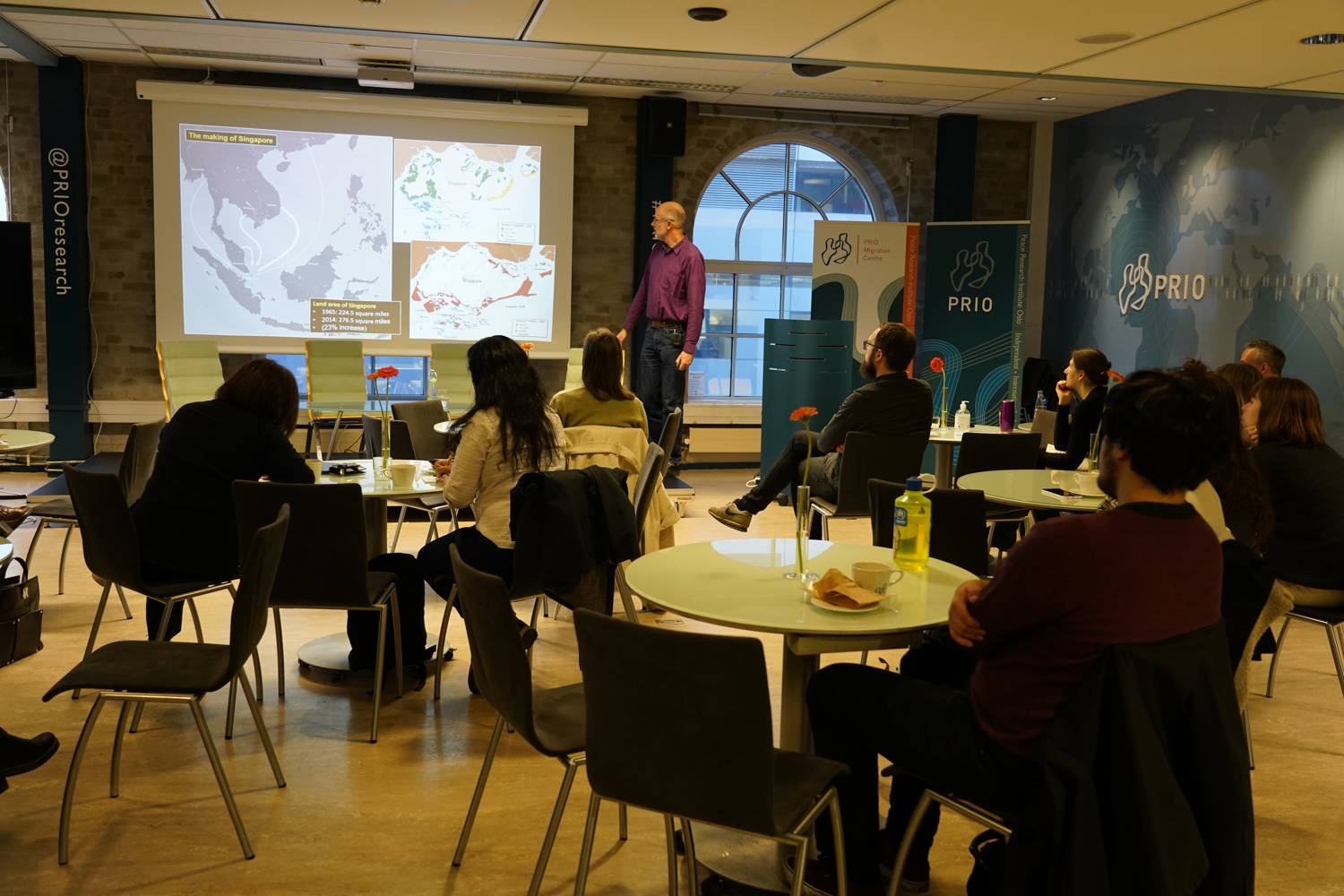
In this talk given at PRIO on 11 November 2022, Jonathan Rigg draws on work across rural areas of Southeast Asia (Thailand, Laos and Vietnam) and South Asia (Sri Lanka and Nepal), and sheds light on the mixed developmental origins, effects and impacts of migration on people, communities and environments.
The seminar will highlight the simple but important point that migration is a process with no natural propensity for enabling and generating good or bad change; context is everything.
As a provocation to start with, Jonathan Rigg suggests that the 'migration impacts on development, might not primarily be about migration at all...'. Jonathan goes on to reflect on different conceptual frames to analyse mobilities and immobilities, seeking to avoid a 'migration bias'. This entail including both production & reproduction perspectives, and giving space to perspectives on care, and the inherent trade-off's of migration at different scales.
To find out more - listen to the recording of the seminar:
This seminar was co-organised by the MigrationRhythms project at PRIO, which explores the roles of migration in trajectories of upward social mobility into middle-classness in four Asian cities and the Network for Asian Studies.
Professor Jonathan Rigg (University of Bristol) has published the books 'More than rural. Textures of Thailand's agrarian transformation' (2019, University of Hawai'i Press); 'Unplanned development. Tracking change in Southeast Asia' (2012, Zed books); and 'An everyday geography of the Global South' (2007, Routledge). He was awarded the Victoria Medal from the Royal Geographical Society in 2020 for “conspicuous merit in research in geography" - and in an interview about the award comments on the collective nature of co-production of knowledge, not least the willingness of people to share with researchers their struggles and aspirations.





